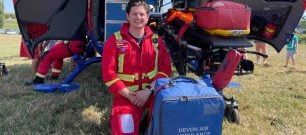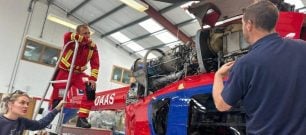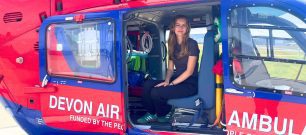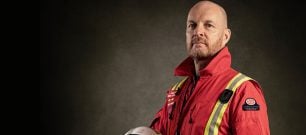
Blog
Christmas for our crew
Dr Lauren Weekes shares what the festive season means for our missions and crew.

Blog
Reducing waste and increasing impact
Learn more about how being sustainable helps to save lives.

Blog
Q&A with Trustee, Vicky Smiley
Trustee Vicky Smiley shares her experience during Trustees’ Week.

Blog
Q & A with Trustee Helen Pannack
Helen Pannack is one of our newest trustees and she shares her experience this Trustees Week.

Blog
Q&A with Trustee, Ollie Dismore
Q&A with Trustee, Ollie Dismore, about his inspiration and motivation to volunteer with DAA

Blog
The cost of a simple yet significant repair
Our Continuing Airworthiness Manager, Michael Snowden, shares what’s involved in some regular maintenance.

Blog
Ellie’s work experience with DAA
Ellie lent her support to the charity for two weeks during summer 2025.

Blog, Crew stories
Skilled and experienced
Nigel is an Advanced Paramedic in Critical Care and Research Lead. He transferred from working on land ambulances to Devon Air Ambulance. He shares how he adapted to the demands of the Helicopter Emergency Medical Service.

Blog, Crew stories
Decisive and resourceful
Rob is among a dozen pilots and engineers who keep our crew flying. His account highlights the challenges and responsibilities involved in emergency responding by air.

Blog, Crew stories
Caring and compassionate
Operations Manager Mark shares his reflections on the challenges of his role as a Critical Care paramedic, particularly an conveying sad news.
